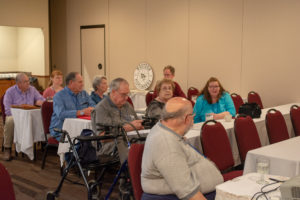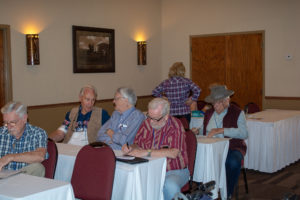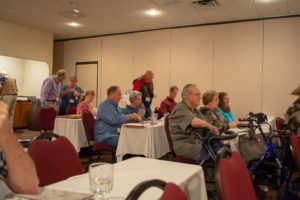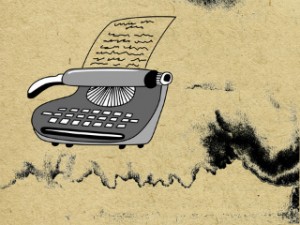Here are some great gifts for your writing friends and family.
- Fingerless Writing Gloves. Do you know a writer who’s always cold? Try these gloves from Storiarts with text from either Pride and Prejudice or the Bible.
- Adult Coloring Books. This one’s specifically for writers.
- A Domain Name. Does your writer have their own website yet? Paying for their own domain name is a great present.
- Books About Writing. Who doesn’t like a good How-To book? Try On Writing by Stephen King or You Are a Writer by Jeff Goins.
- AquaNotes. These are waterproof notepads your writer can use in the shower when those ideas strike.
- Literary Socks. Try these Banned Book Socks or Shakespeare Socks.
- Humorous Coffee Mug. Always a good choice for your coffee- or tea-drinking writer.
- Noise-Canceling Headphones. These will make it easier for your writer to concentrate on their art.
- Literary Jewelry. Try this bracelet (She is too fond of books and it has turned her brain) or cuff links.
- Online Writing Courses. Master Class has courses by writers like Neil Gaiman, Dan Brown, Margaret Atwood, and James Patterson.
- Dead Writer’s Perfune. With notes of black tea, vetiver, clove, musk, vanilla, heliotrope, and tobacco, this fragrance invokes the scent of old books.
- Temporary Tattoos. Litographs has several collections, from Sherlock Holmes to Jane Austin.
- Literary T-Shirts. Litographs also has several of these, which feature text from various novels.
- Personalized Embosser. Let your writer create personalized stationary, give their invitations an official flourish, or remind borrowers whose book they’ve got.
- Writer’s Clock. Give your writer a little nudge with this clock, where every hour has a task like “write,” “edit,” or “drink heavily.”
On Day 2 we learned about Economics in the Old West, Weird Westerns, Legal Labyrinths (the “rights” side of the law), Women Professionals of the Old West, Other Markets for Western Writers — and my own Social Media panel seemed to go over well.
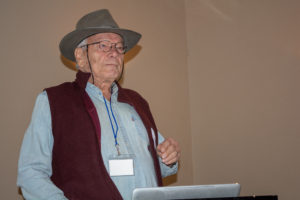
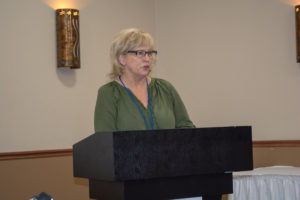
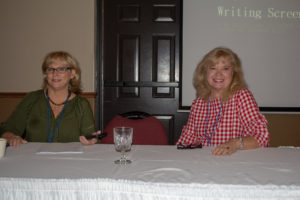
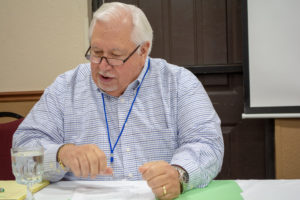
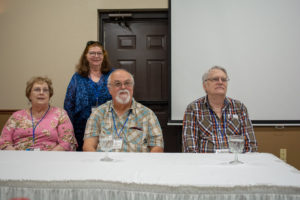
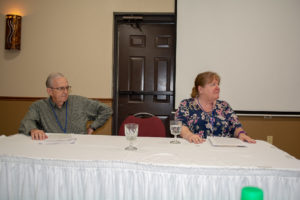
We’ve all been there: someone discovers you’re a writer, fixes you with a curious eye, and blurts out That Question.
Where do you get your ideas?
I usually say “www.ideas.com” and change the subject. Here are 10 more awkward questions you’ll hear – and how to respond.
- How much money do you make? I don’t know why, but people just assume writers a) all make what Stephen King makes and b) don’t mind talking about their salary. The best response here is a vague “Enough” and a quick change of subject.
- Will you read my novel? Or my friend’s or my relative’s or anybody else’s. The correct answer is “I’m sorry, but I just don’t have time.” If they seem serious, explain how they can go about finding a professional copy editor (and mention that those folks get paid for their hard work).
- Will you write a book with me/for me? Everybody has that One Great Idea … it’d make a fantastic book or movie. If only they had someone to help them write it, or to write it for them. If you’re truly interested in their idea, you can offer to help them (but don’t expect much out of someone who hasn’t actually sat down and tried to write on their own first). The better answer is “I’m sorry, but I just don’t have time.” You could explain how they can find a ghost writer if they seem serious (and mention that those folks get paid for their hard work).
- How do you get published? Here’s another would-be writer who’s never actually put any work or research into the craft. The polite answer is “You can find a ton of information on that subject on the internet and Writer’s Digest puts out a great book every year called ‘Writers’ Market’ to help you.”
- How are your books doing? People think this is expressing polite interest, even though it smacks of our first awkward question. The best answer is “They’re doing fine – have you bought your copy yet?”
- Is your book at the library? Most people have no idea how libraries (or bookstores) actually work. The best answer here is “I don’t know, but if you request a copy, they’ll get it for you.” You could also remind them to give you a review on Amazon and/or Goodreads once they’ve read it.
- Is your book on the bestseller list? Unless it actually is, the answer would be “Not yet, but if you buy a copy and tell all your friends to buy one, it might get there.”
- How do you find an agent? This one’s done a bit more work than the “How do you get published” questioner, but they’re still not applying themselves. The right answer is “Writer’s Digest puts out a great book every year called ‘Guide to Literary Agents.'”
- Have you been on any talk shows? Sometimes people equate “author” with “celebrity.” If they’re genuinely confused, you can politely remind them that most authors don’t get invited to talk shows. A good answer is “Not yet – how about you?”
- When will your book be made into a movie? Here’s another common misconception you might politely correct if you feel the need. The best answer is “I have no idea.”
And of course, you’re welcome to think up your own replies to “Where do you get your ideas?”
Here are some shots from the convention. We all had a great time, and it was a real pleasure to meet all of my online writing buddies!
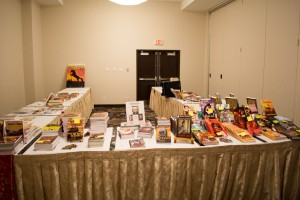
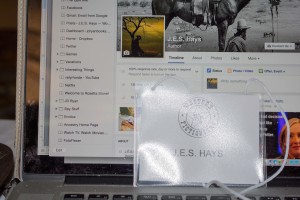
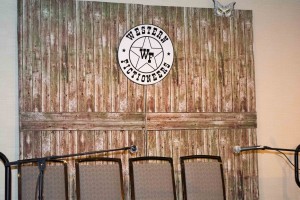
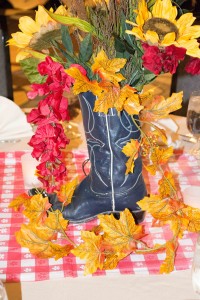
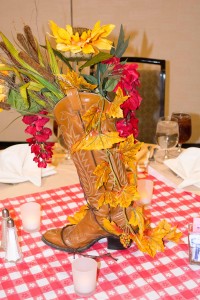
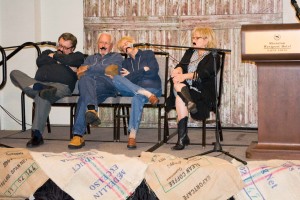

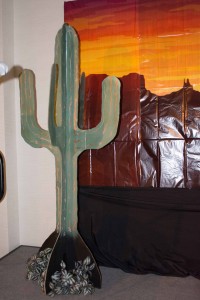
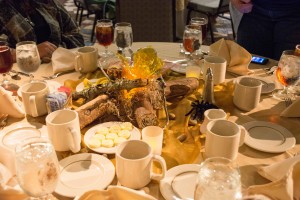
HERE’S a great little suggestion list for those of you who have published books out there!
So we’re off to the beach this weekend, the whole crazy lot of us. Of course, we’re taking our role playing game with us — which reminds me of the link between gamers and writers.
Many writers find that they enjoy role-playing games. The concept is quite similar: invent an imaginary world, people it with characters, and run them into trouble. The only difference is that you’re using dice instead of just your mind (that’s the “game” part of the thing: the random factor).
I’ve actually used role-playing techniques to come up with ideas for stories or conflicts before. After all, if you’ve got the dice, why not use them, right? You can find almost anything online, too. Random town name generators, random map generators, random treasure generators … there are even random “monster” encounter generators. I’ve used all of the above when I need a good fight scene, or a McGuffin for the readers to worry about.
So, as I said, we’re going to be spending a good part of our vacation off in our own little world, making up stories. The only difference is that we’re not writing them down and trying to publish them.
Oh, and there’s no internet at the beach house, so I may or may not be able to keep up the daily short-shorts. There’s wifi at the local bookstore, though, so I’ll plan at least a couple of big posts on writing and what-have-you.
Do any of you play games? Which ones?
HERE’S a link to a great infographic: writing tools of famous writers!
There are a lot of “You know you’re a writer when–” sayings out there. You’ve all seen them. There’s one more you might not have seen: You know you’re a writer when you have a pile of “to be read” books somewhere in your house.
Writers read. It’s not just what we do to find information, or to look up just the right word. We read for the same reason you do: because we love it. Writers make some of the best readers. We toss “real life” out the window in a heartbeat and fall right into the world inside the book. And we’re reluctant to crawl back out once the story’s over.
Writers also make great readers because we know what’s going on behind the wizard’s curtain. We know how hard it is to come up with that perfect phrase, that pithy description. We appreciate good craft when we see it, and are usually quick to write and tell our comrade so, or at least to write a review of the book.
It’s not just about the enjoyment, though. Sure, it’s great to set the world aside for a few hours, but there’s more to reading that that.
Writers read twice. The first time a writer reads a great book, it’s just for the story. We lose ourselves within it and enjoy the tale for the tale’s sake. And it’s going to be read again for pleasure, usually over and over again. That’s not what I’m talking about.
Writers read to learn. After that first reading, when we decide that we love a book, we read it again almost immediately. We read it as though we’re sitting at the author’s knee. This time, we’re not falling into the story world, but hanging above it. We’re looking behind that curtain to see how all those levers and gears work.
What makes a great book stand out from the crowd? How does a great author create a great story? How do they handle description and dialogue? What are their tricks and techniques?
Writers read to emulate. We try to understand how it’s been done well, and we try to apply that to our own work. You know you’re a writer when you have a great big pile of books to scour through, a stack of other writers to analyze.
Who are your favorite authors? What books do you read over and over again?

